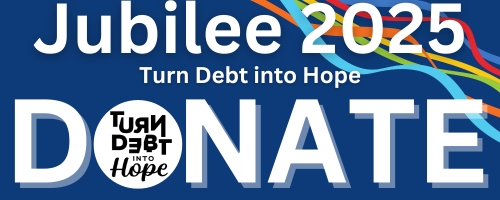Update
On June 14, 2018, at the G20 Energy Transitions Working Group Meetings in Bariloche, Argentina, the Ministers of Energy from Canada and Argentina announced a collaborative peer review of their countries’ subsidies to the oil, gas, and coal industry!
Since 2009, the G20 has committed to phasing out inefficient fossil fuel subsidies, and G7 countries have pledged to do so by 2025. This announcement is a necessary step towards that goal. In the lead up to the G7 summit in Charlevoix, Quebec many of you wrote letters to the Minister of Finance, contacted your MP, distributed postcards, or shared information to end fossil fuel subsidies in Canada. Thank you for sending a strong message to the federal government that Canadians are concerned about this issue and demand action.
Now we are asking you to please take a moment to write to Minister of Finance Bill Morneau (bill.morneau@canada.ca) and Minister of Natural Resources Jim Carr (jim.carr@parl.gc.ca) to thank them for agreeing to a peer review under the G20 process, and for taking this step forward for climate action. While we continue to raise both ecological and Indigenous rights concerns regarding the recent Trans Mountain pipeline purchase, it is important to recognize this positive step.
Call to Action: End Fossil Fuel Subsidies
Canada spends billions of dollars every year on subsidies to the oil, gas, and coal industries. These subsidies undermine the country’s ability to reduce greenhouse gas emissions by encouraging the production and consumption of fossil fuels, and impeding the investments needed to transition to a clean energy economy.
As Canada prepares to host world leaders for the G7 summit in June 2018, we have a golden opportunity to call on the federal government to demonstrate climate leadership by taking concrete steps to end fossil fuel subsidies.
In 2009, Canada and the other G20 countries agreed to phase out “inefficient” fossil fuel subsidies by 2025. As recommended by the Global Taskforce, as G7 President Canada can:
Lead by example and agree to a peer review of its fossil fuel subsidies under the G20 process;
Ensure that the G7 presents a detailed plan on how its members intend to meet the 2009 commitment, as well as accelerate the timeline to phase-out subsidies.
Take Action
Global leaders will meet for the G7 summit on June 8-9 in Charlevoix, Quebec. Over the next two months, let’s send a strong message to the federal government to take action on climate change at this meeting. Write your letter today!
The Department of Finance Canada is responsible for fossil fuel subsidies. Please write to the Minister of Finance to ask that Canada:
Demonstrate climate leadership and announce at the June 2018 G7 meeting its plans for fully phasing out fossil fuel subsidies by 2025, while encouraging other G7 countries to do the same.
Please refer to the Background and Additional Resources sections below for Tips on writing an effective letter, and a Letter Template.
Host a letter writing event with fellow KAIROS volunteers and friends
Amplify! Have fun! Inviting others to write letters is a great way to amplify the message. Invite members of your community to your church, local library, or other public space for a few hours to write letters together. Supply the paper, pens and envelopes (no postage necessary). Have some refreshments and music. Encourage participants to read aloud the background materials. This is a great way for people to deepen their knowledge about the issue and address any questions that may arise. Bringing people together is also a great opportunity to connect with friends and make new ones!
Where do we send our letters?
No postage required! Please mail letters to:
The Honourable Bill Morneau, Minister of Finance
House of Commons,
Ottawa, ON K1A 0A6
If you host an event, we would love to hear from you! Share your event on Facebook and contact Shannon Neufeldt, KAIROS Member Relations and Network Coordinator at sneufeldt@kairoscanada.org or 877-403-8933 ext. 222.
Want to make an even bigger impact? Here are some ideas:
- Send a copy of your letters by email to The Honourable Bill Morneau, Minister of Finance at bill.morneau@canada.ca and copy the following people:
- The Right Honourable Justin Trudeau, Prime Minister – justin.trudeau@parl.gc.ca
- The Honourable Catherine McKenna, Minister of the Environment and Climate Change – ec.ministre-minister.ec@canada.ca
- The Honourable Jim Carr, Minister of Natural Resources – jim.carr@parl.gc.ca
- The Honourable Pierre Poilievre, Conservative Critic for Finance – pierre.poilievre@parl.gc.ca
- Mr. Peter Julian, NDP Critic for Finance – peter.julian@parl.gc.ca
- Your MP. Find your MP here.
- Join the G7 action developed by our friends at Réseau oecumenique justice et paix (ROJEP) in Quebec. Sign a letter to Prime Minister Justin Trudeau calling on Canada to show leadership at the G7 meeting in June, by:
- Accelerating the reduction of greenhouse gas emission in Canada in order to meet our Paris Climate Agreement targets; and
- Ensuring G7 leaders commit the financing necessary to support climate adaptation in the world’s most vulnerable communities
- If you are active on social media, share this Call to Action. Twitter hash tags are: #EndFossilFuelSubsidies, #StopFundingFossils, #StepUp2018, #JustTransition, #KeepitintheGround. Twitter handles for the key elected officials are:
Background
Fossil fuel subsidies create an incentive to produce and consume more fossil fuels, which undermines efforts to reduce greenhouse gas emissions. These subsidies are at odds with Canada’s efforts to implement carbon pricing and other measures under the Pan-Canadian Framework on Clean Growth and Climate Change.
According to a 2015 study conducted by Oil Change International, the Overseas Development Institute and the International Institute for Sustainable Development (IISD), Canada spent approximately $3.3 billion on subsidies to the fossil fuel industry in 2013-2014. Half of these, worth about $1.6 billion, were federal subsidies. Since then, some of these subsidies have been phased out, including the Canadian Exploration Expense (ended in 2017), the Atlantic Investment Tax Credit (phased out from 2009 to 2015), and the Clean Energy Fund (ended in 2015). However, others still remain, including Canadian Development Expense, estimated at $1 billion per year.
Provincial subsidies to the fossil fuel industry are also significant. The 2015 study estimated the Alberta Crown Royalty Reductions at $1.161 billion and the British Columbia Deep Drilling Credit at $271 million. Other provinces such as Ontario and Newfoundland have subsidies, as well. An OECD database estimated the total of these provincial subsidies at $3 billion in 2016. Action is needed by both federal and provincial governments to phase out fossil fuel subsidies.
In addition, most estimates of fossil fuel subsidy spending in Canada do not account for the unintended negative impacts on the environment and on human health from the production and consumption of fossil fuels. The cost of dealing with these negative impacts, or “externalities” falls to society. For example, the public health system pays for increased respiratory illnesses from air pollution. When the government takes on these costs, some consider this as an indirect subsidy to the fossil fuel industry. A 2015 report from the International Monetary Fund (IMF) included these indirect costs in calculating fossil fuel subsidies and pegged Canada’s share at $46 billion.
At the 2009 G20 summit in Pittsburgh, global leaders committed to the elimination of inefficient fossil fuel subsidies over the medium-term, underlining that “inefficient fossil fuel subsidies encourage wasteful consumption, reduce our energy security, impede investment in clean energy sources and undermine efforts to deal with the threat of climate change.” G7 leaders reaffirmed this commitment in 2016, setting the deadline of 2025 for phase out in the G7 group of countries.
The Liberal government made a promise to end fossil fuel subsidies as part of their 2015 election platform. In the mandate letters to the Minister of Finance and Minister of Environment and Climate Change, the Prime Minister called on both ministers to work together to “fulfill our G20 commitment and phase out subsidies for the fossil fuel industry over the medium-term.” During Lent, Citizens for Public Justice’s Give it up for the Earth campaign called on Minister McKenna to end all subsidies to the fossil fuel sector and invest strategically in renewable energy, energy efficiency, and skills development for the just transition to a clean energy economy. Letters to the Minister of Finance will help to amplify this message, demonstrating to Cabinet that this issue is a priority for Canadians.
“Working together on climate change, oceans, and clean energy” was identified as one of five key themes for Canada’s 2018 G7 Presidency. Following the Leaders summit in June, G7 Environment and Energy Ministers are scheduled to meet about this theme in October 2018. Yet, issues of climate change should not be limited to discussion about energy and the environment. Preparing for the just transition to a clean energy economy requires us to work across disciplines and integrate climate change into conversations about economic growth, clean energy jobs, infrastructure, health, gender, peace and security, and more.
In November 2009, KAIROS adopted the following policy positions regarding the tar sands and fossil fuel development in Canada:
- No further approvals for tar sands projects;
- Support Indigenous communities’ and environmental groups’ long-standing calls for independent studies, funded by the Alberta and federal governments, on the cumulative impacts of the tar sands development, especially on health, water and ecosystems. These studies must involve Indigenous people and be accessible to them and to the public.
- The federal government must develop a clean and sustainable energy strategy, based on conservation and the development of renewable energy, as well as a funded transition plan for sustainable jobs in a renewable energy sector. The principles of ecological sustainability and Indigenous rights must be applied to the development of a renewable energy projects.
The position calling for no further approvals for tar sands projects includes pipelines to export bitumen and liquefied natural gas (LNG). This position recognizes that in order to have a 50% chance of limiting global warming to 1.5°C, the majority of global reserves of oil, gas and coal must not be extracted and burned.
Additional Resources
- LASER TALKS: Fossil Fuel Subsidies by Citizen’s Climate Lobby (February 2018)
- Why Fossil Fuel Subsidies Don’t Belong in Canada’s Climate Policy by Citizens for Public Justice
- Unpacking Canada’s Fossil Fuel Subsidies by IISD
- Fossil Fuel Subsidies: Fact Sheet by KAIROS Canada (2015)
- Fossil Fuel Subsidies in Quebec (in French only) by Équiterre
- 2017 Auditor General Report to the Parliament of Canada, Report 7—Fossil Fuel Subsidies
- Tips on writing an effective letter
- Letter Template








